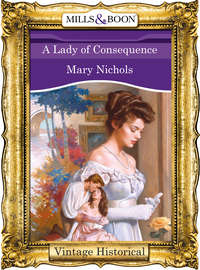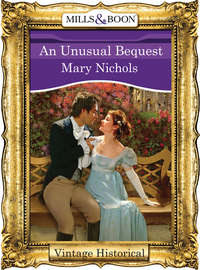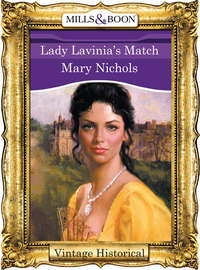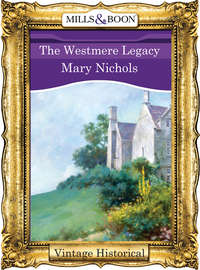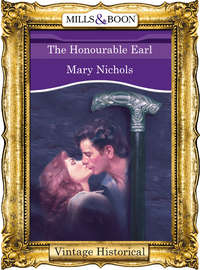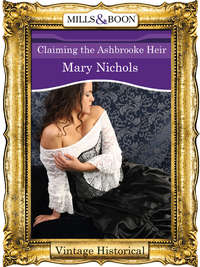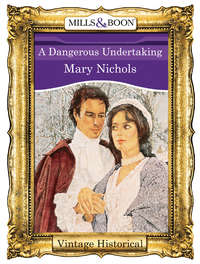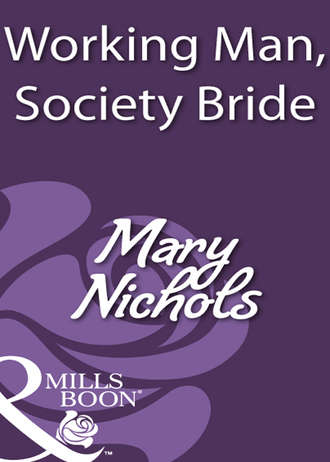
Полная версия
Working Man, Society Bride
They ate in silence for some time until Lucy ventured, ‘Did you have a good journey, Papa?’
‘It was as abominable as usual.’
‘Did you come home by road, then?’
‘No, I did not. I came on the railway, but it kept stopping for no reason that I could see.’
‘I expect it was because you went from one company’s lines to another,’ Lucy said. ‘You have to be coupled up to their locomotives.’
‘What do you know of it?’
‘I read it in the newspaper. There was a report about a debate in the Commons about the number of lines being agreed to and Mr Hudson’s plans to amalgamate them so that there is no need for constantly changing in the middle of a journey.’
‘Not suitable reading for a young lady, Lucinda. And Hudson will come to grief, you mark my words.’
‘Why are you so against the railways, Papa? I should have thought they brought enormous benefit.’
He looked sharply at her. ‘What is your interest in them, young lady?’
‘It is only that I journeyed by train for the first time when we went to London and I found myself wondering about them. It is a very fast way to travel. Over forty miles an hour, we were told. It felt like flying.’
‘So it may be, but the countryside where they go is ruined for ever. They run over good farm land and are so noisy they frighten the cows so they don’t produce milk, the sparks from their engines are a danger to anyone living near the line, and they ruin the hunt because the fox can escape on to railway land where horses can’t follow. And that is after all the desecration to the countryside the navvies cause when they are building them. They throw up their shanty towns wherever they fancy and spend their free time drinking and quarrelling. Their children run round in rags with no education and no notion of cleanliness. Does that answer your question?’
‘Yes, Papa. What would happen if a landowner refused to allow the railway to go over his land?’
‘Then they would have to go round it. Now, enough of that. Let us have the rest of our dinner in peace.’
Lucy decided it was definitely not the time to mention seeing the surveyors, and after a few minutes of eating in silence her mother began to talk about their visit to Linwood Park. ‘I do not know how big the house party will be,’ she said. ‘Nor exactly what plans have been made for our entertainment, but we must go prepared.’
‘Naturally we must go prepared,’ the Earl said. ‘There will be riding and excursions, shooting and cards in the evening and undoubtedly at least one ball.’
‘I wondered if you might consent to allow Rosemary to accompany us. The invitation was for the whole family….’
‘Whole family,’ echoed Esme, speaking for the first time. ‘May I go?’
‘Certainly not!’ snapped her father. ‘But I will think about allowing Rosemary to go, if she behaves herself.’
‘Rosemary always behaves herself,’ Lucy put in, winking at her sister. ‘And I shall be glad of her company if we are to be with a crowd of strangers.’
‘They won’t all be strangers,’ the Countess said. ‘Many of them you will already have met in London.’
Lucy did not see the surveyors again and supposed they had either decided she was right about their trespassing or they had finished what they were doing and gone elsewhere. In a way she was sorry because she could not get thoughts of that tall man out of her head. She could see him in her mind’s eye, standing facing her with his feet apart, his hands carefully crumbling soil, his head thrown back and his lively eyes looking up at her. His stance had been almost insolent and she should have been repelled; instead, she found him strikingly attractive. She found herself wondering what it would be like to be held in those powerful arms and, even in the privacy of her room, blushed at the scenario she had created. She must stop thinking about him, because he was nothing but a labourer, a brute of a man used to working with the strength of his broad back, and, though she might be attracted by his physique, he would never fit in to the kind of life she led. He would, for instance, never be at home in a ballroom. On the other hand, Mr Gorridge was to the manner born and knew how to dress and behave among ladies. And Mama and Papa approved of him.
Linwood Park was not above thirty miles from Luffenham Hall and, for a short stretch, their lands abutted, so it was an easy carriage ride to go from one to the other, which was how the Countess and her two daughters travelled, followed by a second coach containing Annette, Sarah to look after the girls and the Earl’s valet, together with all the luggage piled in the boot and strapped on the roof. The Earl decided to ride so that he would have his own horse with him. Lucy would have liked that, too, but he had said arriving on horseback would not create the right impression; if she wanted to ride, she would undoubtedly be provided with a mount from the Viscount’s stables.
The house stood halfway up a hill above the village, which in times gone by had been known as Gorridgeham, from which the first Viscount had taken his name, but was now simply Gorryham. The house, at the end of a long drive, was surrounded by a deer park, an enormous lake, a large wood in which game birds were reared and several smaller woods and farmsteads. Behind the house the land rose to Gorridgeham Moor, shortened by the locals to Gorrymoor, a wild, uncultivated tract of country ideal for riding and hunting.
The house itself was built of stone with a façade at least a hundred feet in length. There was a clock tower at one end and a bell tower at the other. In its centre above the imposing portico with its Greek columns was a huge dome, above which fluttered the Gorridge family flag. The evenly spaced windows on the ground floor reached almost from floor to ceiling, though matching rows on the first and second floors were not quite so deep.
‘I was right,’ Rosemary said in awe. ‘It is a palace. Fancy being mistress of that, Lucy.’
Lucy did not comment. It was not the place that concerned her, but the people. The size and opulence of a house could never make up for arrogant, unkind people. Not that Viscountess Gorridge had ever been arrogant and unkind on the few occasions when Lucy had met her before going to London. And in London, when they had attended the same events, she had been most affable. She could not speak for the Viscount because she had hardly exchanged half a dozen sentences with him. He had a way of ending all his pronouncements with a barked, ‘Eh, what?’
As the carriage drew up, the doors opened and Lady Gorridge came out to welcome them. All the corsetry in the world could not disguise the fact that the Viscountess was fat. She had a round, rather red face, which gave her the appearance of jollity. And her welcome seemed to bear that out.
‘My dear Lady Luffenham, how glad I am to see you here at last,’ she said, as the Countess left the coach followed by the girls. ‘And Lady Lucinda. How do you do?’
Lucy curtsied. ‘Very well, my lady. May I present my sister, Rosemary.’
Rosemary curtsied. ‘My lady.’
Lady Gorridge acknowledged her and then said, ‘Do let us go inside. Tea is about to be served.’ As she spoke, the second coach rolled up the drive and disappeared round the side of the house. ‘Oh, good, your servants have arrived. They will be directed to your rooms and will begin unpacking while we drink our tea.’ She took the Countess’s arm to lead her indoors. ‘Come, my son and daughter are in the drawing room, waiting to welcome you. Gorridge will come in later. He had some business on the estate to deal with, which he could not leave.’
‘I understand,’ the Countess said. ‘Lord Luffenham is coming on horseback. He will arrive shortly, I expect.’
The hall into which they were conducted was vast. It was big enough for a ballroom, with a huge brick fireplace at one end. A lackey in livery sprang from a chair beside the door as they entered and stood stiffly to attention. The visitors were divested of capes and gloves, which were piled on his outstretched arms, and then Lady Gorridge hurried the little party forward into a second smaller hall lined with doors, one of which was open. ‘Here we are. Edward, Dorothea, our guests have arrived.’
Edward, who had been standing by the hearth where the empty grate was concealed by a screen painted with flowers, came forward to take the Countess’s hand. ‘Welcome, my lady.’ He turned to Lucy. ‘And you, my dear Lady Lucinda. Welcome, welcome.’ Before she could move, he had seized her hand and raised it to his lips. Startled, she withdrew it and put it behind her back. She had not liked the damp pressure of his mouth on her skin.
‘Mr Gorridge.’ She bowed her head.
‘And this is Lady Rosemary.’ He looked her up and down, as if sizing her up, and Rosemary blushed to the roots of her hair, bobbing a curtsy as she made a polite reply.
‘And this is my daughter, Dorothea,’ Lady Gorridge put in. ‘I hope you will become great friends. Dorothea, make your curtsy to Lady Luffenham and the Ladies Lucinda and Rosemary.’
Dorothea was about the same age as Rosemary, but, like her mother, on the plump side. She wore her dark hair in two plaits looped around her ears. She was evidently shy, because her response was hardly audible.
By the time all these introductions had been made, the tea tray had been brought in and her ladyship busied herself dispensing tea and sandwiches. ‘We have arranged some little amusement and diversions for your stay,’ Lady Gorridge told them. ‘But not immediately. We thought we would have a quiet evening with a little homemade entertainment and music. Time enough for jollity tomorrow when our other guests arrive, don’t you think?’
The Countess murmured her assent. Lucy, sipping tea and nibbling delicate sandwiches, used the opportunity to study Mr Gorridge. She wanted to see if he was any different in the country from his persona in town. Was he more relaxed, less formal? Was he dressed any differently? Were his eyes any less cold? Had he had time to change his mind about her, even supposing he had made up his mind in the first place? She realised suddenly that he had turned from speaking to the Countess and had caught her looking at him. She quickly turned her head away, but not before she had seen him smile. She could not make up her mind if it was one of amusement or condescension.
She dare not look at him again and turned her attention to the room. It was sumptuously furnished, with a thick Aubusson carpet, several sofas and stuffed chairs, like the one she occupied. There were little tables scattered everywhere on which small ornaments were displayed. The walls were crammed with paintings, from very small ones to large, formal family portraits. She rose, teacup in hand, and wandered over to the window, which gave her a view of a terrace with stone vases and statues lining the steps down to a lawn with flower beds brilliant with colourful summer blooms. It was all too perfect to be true. Beyond that was a park, and she could see the sparkle of water and longed to be outside.
‘Shall you like to explore?’
She whipped round to find Edward standing so close behind her he was brushing against her skirt. ‘Perhaps later, Mr Gorridge.’
‘Oh, yes, later. After dinner, perhaps.’
‘It depends whether Mama feels like it. She is often tired after a journey.’
‘Ah, the need for a chaperon. We must not forget that, must we? Perhaps Lady Rosemary would like to join us, if Lady Luffenham doesn’t feel up to it. The sun setting over the lake is a particularly beautiful sight.’
She did not commit herself, but he appealed to her mother, who graciously said she would allow Rosemary to chaperon her sister, which was not at all what Lucy wanted. She was reluctant to be alone with him and she did not think Rosie’s services would be adequate. Tea over, they were shown upstairs to their rooms to rest before changing for dinner. Lucy had barely sat down and kicked off her shoes, when Rosemary arrived from the adjoining room.
‘It is perfect, Lucy, just perfect,’ she said, sitting beside her sister on the bed. ‘My room is huge and there is a canopied bed and a dressing room that has a bath. Just imagine, a bath all to myself.’ She looked about her. ‘Yours is the same. Oh, Lucy, I am entranced and full of envy.’
‘It’s all show.’ If Edward Gorridge proposed, she could, one day, be mistress of this magnificent house. She had as yet not explored it and had no idea how many servants there were, but it was plain there were many more than were employed by her father. She could entertain, buy extravagant clothes, ride magnificent horses. But was that what she wanted?
‘Don’t be silly, even a show needs pots and pots of money. I thought we were wealthy, but this far exceeds anything we have. Our house is poky by comparison.’
Lucy laughed. ‘In that case, you don’t know the meaning of the word poky. Try going into one of the cottages on the estate and you’ll see truly poky.’
‘Ugh, no, thank you. And I did say by comparison.’
‘And I would rather have our comfortable home than this opulence. It frightens me.’
‘Why ever do you say that? You can’t stay at home for ever. You have to marry and move on, that’s the way things are, and you would soon get used to it. It isn’t as if Mr Gorridge is an ogre. He isn’t ugly, he’s handsome, and his manners are perfect. What more do you want?’
Lucy declined to answer. Instead she said, ‘Go and change. We mustn’t be late down for dinner.’
Rosemary left her and she sat a little longer, musing on the day so far. If she was going to do as her mother had asked her and try to think of Mr Gorridge as a husband, she was going to have to make an effort. A month before it would have been easier; she had returned from London thinking that perhaps she could learn to love him, but that was before she met a certain giant of a navvy who had warm brown eyes and a ready smile and who had somehow managed to mesmerise her. How else could she explain why she was constantly thinking of him and seeing things through his eyes? What would he make of Linwood Park and its occupants? What did he think about inherited wealth? He would despise it. Had he forgotten her the minute she had disappeared from his view? It was all so silly and so impossible and she was thoroughly vexed with herself.
The maid came in to help her to dress and she forced herself to concentrate on what she was going to wear.
It took an hour, but at the end of it she was ready. She had chosen a simple gown in lime-green silk. It had a boat-shaped neck and small puff sleeves; its only decoration was a band of ruching in a darker shade of green, which ran from each shoulder to the waist in a deep V and then crossed to spread in a wide arc down and around the skirt. The ensemble was finished with elbow-length gloves, a fan and a string of pearls her father had bought her for her presentation. Her hair was parted in the middle and drawn to each side, where it was secured with ribbons and allowed to fall into ringlets over her ears. Taking a last look in the mirror, she made her way downstairs. A footman in the hall directed her to the drawing room.
She was, she realised as he opened the door for her to enter, the first lady to arrive and the room contained her father, Viscount Gorridge, Mr Gorridge and Mr Victor Ashbury, Edward’s cousin, whom she had met in London. They stopped their conversation to acknowledge her little curtsy, and for a moment there was silence.
‘Am I too early?’ she asked, wondering whether to retreat.
‘No, no,’ the Viscount assured her. ‘It is refreshing to find a lady who is punctual. Would you care for a cordial or ratafia, perhaps?’
‘No, thank you, my lord.’ She seated herself on a chair near the window some distance from them. ‘Please don’t mind me,’ she said. ‘I shall sit quietly here until the other ladies arrive.’
Edward came and stood by her chair. ‘I fear you will be immeasurably bored by the conversation,’ he said. ‘They are talking about the railway.’
‘I do not find that boring.’
‘Lucinda has a lively curiosity and interests herself in many things,’ her father told the others, though whether he was praising her or excusing her, she could not tell. At least he was smiling and seemed more relaxed. ‘And her first journey in a railway carriage has excited her interest.’
‘How did you find it?’ the Viscount asked. ‘Not too noisy or dirty? Eh, what?’
‘It was both,’ she said. ‘But exciting, too. Do you think the railway will be the transport of the future?’
‘Oh, undoubtedly,’ he said. ‘It is exactly what I have been saying to your papa.’
The door opened to admit Lady Gorridge and Dorothea, followed by the Countess and Rosemary, and the conversation was dropped. Lucy was sorry, in a way; she wanted to learn more and it was all because of a certain navvy who had somehow inveigled his way into her head and would not go away. She could not tell anyone about him, could not talk about him, but discussing the burgeoning industry of which he was a part was the next best thing. She wanted to learn everything she could, though when she asked herself why, she could not provide herself with an answer.
She looked up suddenly to find Edward holding out his arm and realised that dinner had been announced and he was offering his escort into the dining room. She stood up and laid her fingers on his sleeve and they followed in line behind Viscount Gorridge with her mother, and Lady Gorridge with her father. Rosemary and Dorothea brought up the rear with Mr Ashbury.
‘Only a small, intimate gathering tonight,’ Lady Gorridge said as they took their seats and the table. ‘Almost, you could say, en famille. Tomorrow the rest of the company will arrive.’
Lucy looked at Edward to see if he had reacted to the obvious hint that they would all soon be related, but he was busy signalling to the wine waiter to take round the bottle. She felt as if she were being dragged into a deep pool and, unless she swam as hard as she could against the current, she would be dragged under. But it was definitely not an appropriate time to strike out.
Because it was informal, the dishes were set upon the table for them to pass round and help themselves and before long the conversation, which had begun with talk of the weather and the hope it would remain warm and dry for their stay, returned to the subject the men had begun before the meal.
‘You should invest in the new railways, Luffenham,’ Lord Gorridge said. ‘There promises to be rich pickings for anyone who gets in early. I have already made ten thousand pounds into fifteen.’
‘Everyone’s gone mad,’ the Earl said. ‘Railways here, railways there, loop lines, branch lines, connections. It’s becoming a mania and, like all manias, it will go out of fashion.’
‘Don’t agree, my friend. It’s here to stay. I’ve taken shares in the Eastern Counties. Hudson’s paying dividends on the promise of profits to come.’
‘A fool thing to do,’ the Earl maintained. ‘The line won’t earn a penny until it’s opened and in use and he’ll find himself in dun territory.’
‘His problem, not mine, eh, what? Anyway, I’ve put my profit to good use by taking shares in the Leicester to Peterborough. It’s being built by Henry Moorcroft and he’s solid enough. The line is going to cross my land down in the village and that in itself has netted me a few thousand for a tiny strip of land I won’t even miss. And I’ll get my own station into the bargain. I advise you to do the same.’
‘Gorridge, do you have to discuss business at the dinner table?’ his wife queried. ‘It is not polite. Our guests will become bored. Let us change the subject.’
Lucy was disappointed; the conversation was just becoming interesting. The navvy had told her he was surveying a line from Leicester to Peterborough, so it must be the one Viscount Gorridge was interested in. Would it go ahead? Or would her father’s opposition put paid to it? If the line went ahead, she might see the man again, but why did she want to? Striking and handsome as he was, he was no more than a common labourer and far beneath her socially, so why think about him? The trouble was that there was nothing common about him. He was extraordinary—he must be if he could set her pulses racing and her mind in a whirl. And he didn’t talk like a labourer.
‘Lucinda.’ Lady Gorridge interrupted her thoughts. ‘I may call you Lucinda, mayn’t I?’
‘Yes, of course, my lady.’
‘Do you sing or play?’
‘A little of both, my lady, but neither especially well.’
‘Lucy is being modest,’ Rosemary put in. ‘She is more than competent on the pianoforte and she has a pleasant singing voice.’
‘I am no better than you,’ her sister said.
‘Capital!’ their hostess said. ‘When the gentlemen join us, we shall entertain each other. Edward has a fine baritone. And perhaps later we will have a hand or two of whist.’
‘Mama, I promised to take Lady Lucinda and Rosemary for a walk in the grounds,’ Edward told her when the idea was put to the men.
‘You can do that tomorrow. It will be too late tonight by the time we have finished dinner. The sun will be going down and it will turn chilly. Don’t you think so, Lady Luffenham?’
Lady Luffenham agreed.
When the meal ended the ladies retired to the drawing room and the teacups, leaving the men to their port and cigars and their talk.
‘Now,’ Lady Gorridge said, setting out the cups. ‘We can have a little gossip of our own. Did you enjoy your London Season, Lucinda?’
‘Yes, indeed,’ Lucy replied. ‘But I must admit to being glad to be home. London is all very well for a visit, but I prefer the country.’
‘I quite agree, which is why I did not stay in town the whole time. Gorridge wanted to come back for reasons of business—railways again, I am afraid—and I decided to come back, too. No doubt you saw something of Edward after we left.’
‘Yes, he was most attentive.’
‘What he needs is a good wife, and so I have told him. It is time he set up his own establishment. There is our house in Yorkshire, which is unoccupied except by a skeleton staff, and it needs to be lived in. It will make him an admirable country home.’
Lucy had no idea how she was supposed to respond to that and so she sipped her tea and smiled and said nothing.
‘I believe there is good hunting country in that area.’ The Countess added her contribution to what Lucy saw as persuasion.
‘Oh, yes. Edward loves to hunt. Do you hunt, Lucinda?’
‘No, I do not care for it. Rosemary is the huntswoman of the family.’
‘Is that so?’ Her ladyship turned reluctantly to Rosemary.
‘Yes, my lady,’ she answered. ‘We girls have been encouraged to take part since we have been old enough to leave our ponies behind and ride proper horses.’
‘We shall naturally invite you and Viscount Gorridge to bring Mr Gorridge with you to our next one,’ the Countess said quickly. The Earl was famous for the hunts he held on the Luffenham estate, which Viscount Gorridge had attended in the past. ‘That goes without saying.’
‘Thank you. I am sure Edward will enjoy that. Alas, my hunting days are over, but I shall enjoy watching from a distance with Lucinda.’
The gentlemen rejoined them at that point and Lady Gorridge busied herself with dispensing tea for them and then calling on Lucy to sing and play, which she did to warm applause. Then she played a duet with Rosemary, while Edward stood by the piano ready to turn over the music. After that he was persuaded to sing and chose ‘Greensleeves,’ the old ballad supposedly composed by Henry the Eighth, saying it was in honour of Lucy’s beautiful gown. He looked at her the whole time he was singing and she felt her face growing hot. When she tried to look away, he stepped round her so that he was in front of her again and took her hand so that she had no choice but to look at him or appear rude. Dorothea was next and sang to her own accompaniment, then the Countess played for the Earl to sing and they rounded the entertainment off by all singing a round song together.
‘Now, what about a hand or two of whist?’ Lady Gorridge said.


